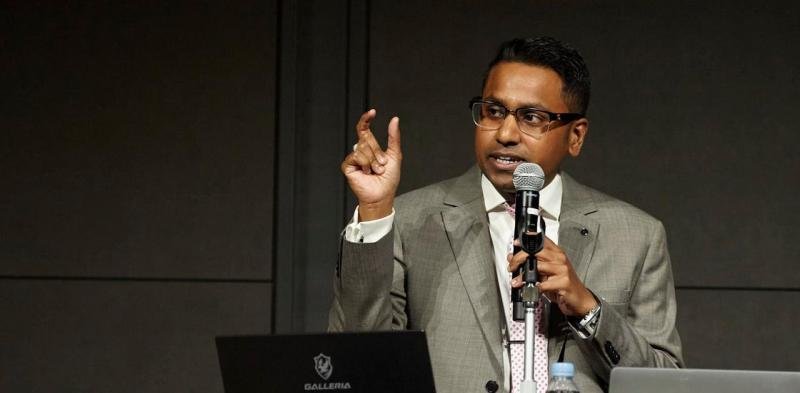Opinion: balancing act - Should education evolve in an AI-driven world?
As education continues to evolve with the rapid advancement of technology, schools and educational institutions some are speculating that schools are facing an unprecedented challenge: preparing students for a future where artificial intelligence (AI) plays a central role in the workforce.
This challenge is underscored by a recent report from Springboard for Business, which highlights the growing skills gap in the corporate sector and the urgent need for upskilling and reskilling in response to technological innovations and macroeconomic pressures.
The State of the Workforce Skills Gap Report, drawing on insights from over 1,000 corporate professionals at large enterprises, reveals that 70% of executives believe their companies are financially suffering due to a workforce lacking essential competencies.
This gap is particularly alarming as it not only affects current business performance but also has implications for future workforce readiness, with 44% of workers' skills expected to be disrupted in the next five years.
Chris Duchesne, General Manager of Springboard for Business, emphasised businesses' need to adapt by investing in transformative upskilling and reskilling programmes. "For businesses to stay competitive in this dynamic, high-stakes business landscape, they need not only technical skills but also durable ones, such as strategic thinking, problem-solving, and decision-making," Duchesne stated.
The report's findings resonate deeply within the educational sector, especially in light of remarks made by Lord Jim Knight at this year's BETT education tech show. During his presentation "AI in education: From Insights to Impact," alongside Rowena Chung, Lord Knight highlighted the permanence of AI in our world and the naivety of ignoring its impact. "The reality is AI is here to stay,” he said, noting that "30% of white collar tasks are likely to be replaced by AI."
Lord Knight's observations prompt a significant reflection on the purpose of education in an AI enabled world. He urged educators and policymakers to rethink education, focusing on preparing students to collaborate with machines and each other. "We’ve got to train our kids to be better collaborators with machines, better collaborators with each other; their competitive advantage will be as humans, not as people who can recall knowledge," Lord Knight explained.
This call for a shift in educational focus aligns with the skills gaps identified by the Springboard for Business report. The demand for data analysis, project management, AI/machine learning, software engineering, and cybersecurity skills among businesses underscores the need for schools to integrate these competencies into their curricula. Furthermore, the emphasis on durable skills like strategic thinking and problem-solving highlights the importance of developing students' ability to navigate complex, real-world challenges.
Educational institutions are at a crossroads, tasked with balancing traditional knowledge acquisition with cultivating skills that will be critical in a machine-dominated future. This balance is crucial for student success and the broader societal adaptation to a rapidly changing workforce landscape.
The debate between traditional versus more progressive learning methods has been long standing within the educational community. This discussion has become even more pertinent in light of the rapid technological advancements and the integration of artificial intelligence (AI) in both the workforce and daily life.
While there's a pressing need to prepare students for future job markets dominated by AI and technology, as highlighted by the recent findings of Springboard for Business and the insights shared by Lord Jim Knight, there's also a strong argument for preserving the intrinsic value of learning beyond vocational training.
Many educators advocate for a balanced approach that not only equips students with the skills needed for future careers but also instils in them a love for learning and an appreciation of knowledge for its own sake. Renowned educational philosopher John Dewey is often cited for his views that education should not merely be about vocational training but should also focus on creating individuals who are well-rounded, critical thinkers.
Dewey famously said, "Education is not preparation for life; education is life itself." This perspective underscores the importance of developing a curriculum that fosters a deep, lifelong engagement with learning, going beyond mere job preparation.
Adding to the complexity of this debate is the perspective offered by Sir Ken Robinson, an influential advocate for transforming education. He argued for an educational system that nurtures creativity and individual talents, crucial for personal and societal growth. In his famous TED talk, Robinson stated, "Our task is to educate their whole being, so they can face this future. By the way – we may not see this future, but they will. And our job is to help them make something of it."
The quote highlights the responsibility of educators to prepare students not just for future jobs but for the challenges and opportunities that lie beyond the current horizon.
In concluding his presentation, Lord Knight encapsulated the urgency of this educational evolution: "We’ve got to be more ambitious, I think” resonates with the need for a more holistic approach to education - one that encompasses both the development of technical competencies and the nurturing of a lifelong passion for learning.
This ambition - to reimagine education in the context of a machine-enabled world - will be vital in empowering the next generation to thrive alongside AI rather than in competition with it.





